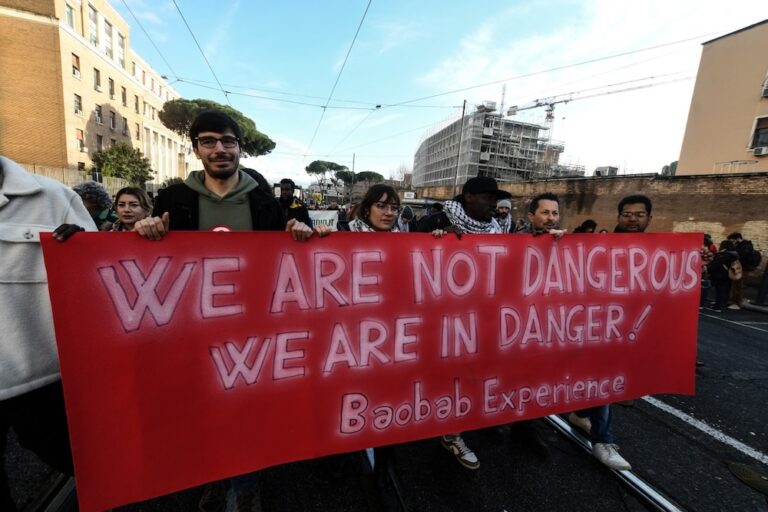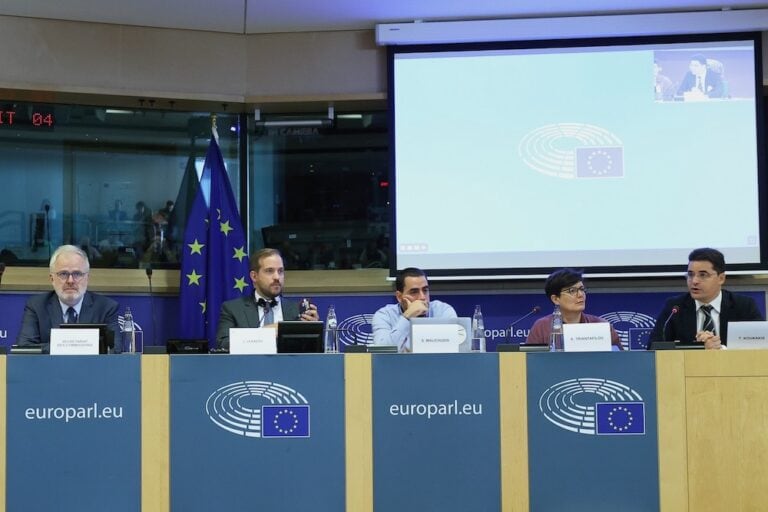(RSF/IFEX) – Reporters Without Borders has deplored police searches of the offices of the daily newspapers “La Repubblica” in Rome and Milan and “Il Piccolo” in Trieste and said it was “unacceptable” that journalists were being treated as police assistants. “We are alarmed at the attitude of the judiciary, which is freely violating the secrecy […]
(RSF/IFEX) – Reporters Without Borders has deplored police searches of the offices of the daily newspapers “La Repubblica” in Rome and Milan and “Il Piccolo” in Trieste and said it was “unacceptable” that journalists were being treated as police assistants.
“We are alarmed at the attitude of the judiciary, which is freely violating the secrecy of sources of investigative journalists,” it said. “The searches were meant to get hold of this information by force.”
A dozen police officers searched the Milan offices of “La Repubblica” for 11 hours on 11 August 2006 on the orders of the Brescia city prosecutor, Giancarlo Tarquini, as part of an investigation into the February 2002 CIA kidnapping of an imam. The office of journalist Cristina Zagaria was searched with particular thoroughness and police took away papers and notes and copied material off her computer. Her house and that of her companion were also searched. Journalist Carlo Bonini’s computer was also seized, even though he was not involved in the legal investigation.
Late the same night, police searched the newspaper’s main offices in Rome for four hours.
The offices of “Il Piccolo” were searched for six hours, and the home of journalist Claudio Ernè was thoroughly combed.
Zagaria and Ernè have been accused of “violating legal confidentiality rules” and “handling secret documents” under article 648 of the criminal code as part of a lawsuit by Trieste’s SIMSI (military intelligence) chief, Lorenzo Pillini, who accused them of quoting in the press remarks he made during an interrogation about the kidnapping of a former Milan imam, Abu Omar, by CIA agents in Italy. Italian secret police cooperation with the CIA has not yet been proven.
Prosecutor Tarquini said during a press conference that the searches of the newspapers were “personal and precisely targeted” and did not concern other journalists with the newspapers. “Press freedom was not attacked,” he said.
The editorial board of “Il Piccolo” said that a segment of the media was under “difficult pressure and harassment.” The editors of “La Repubblica” said they were “disturbed, astonished and worried about the independence of the profession.” Serventi Longhi, secretary-general of the Italian Journalists’ Federation (FNSI), said there was “definitely a hostile attitude toward journalists in the country, created by some politicians and judges.”


